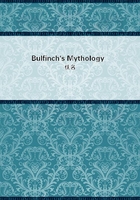
第128章
"What though the Moor the basilisk hath slain, And pinned him lifeless to the sandy plain, Up through the spear the subtle venom flies, The hand imbibes it, and the victor dies."Such a prodigy was not likely to be passed over in the legends of the saints. Accordingly we find it recorded that a certain holy man going to a fountain in the desert suddenly beheld a basilisk.
He immediately raised his eyes to heaven, and with a pious appeal to the Deity, laid the monster dead at his feet.
These wonderful powers of the basilisk are attested by a host of learned persons, such as Galen, Avicenna, Scaliger, and others.
Occasionally one would demur to some part of the tale while he admitted the rest. Jonston, a learned physician, sagely remarks, "I would scarcely believe that it kills with its look, for who could have seen it and lived to tell the story?" The worthy sage was not aware that those who went to hunt the basilisk of this sort, took with them a mirror, which reflected back the deadly glare upon its author, and by a kind of poetical justice slew the basilisk with his own weapon.
But what was to attack this terrible and unapproachable monster?
There is an old saying that "everything has its enemy," and the cockatrice quailed before the weasel. The basilisk might look daggers, the weasel cared not, but advanced boldly to the conflict. When bitten, the weasel retired for a moment to eat some rue, which was the only plant the basilisks could not wither, returned with renewed strength and soundness to the charge, and never left the enemy till he was stretched dead on the plain. The monster, too, as if conscious of the irregular way in which he came into the world, was supposed to have a great antipathy to a cock; and well he might, for as soon as he heard the cock crow he expired.
The basilisk was of some use after death. Thus we read that its carcass was suspended in the temple of Apollo, and in private houses, as a sovereign remedy against spiders, and that it was also hung up in the temple of Diana, for which reason no swallow ever dared enter the sacred place.
The reader will, we apprehend, by this time have had enough of absurdities, but still he may be interested to know that these details come from the work of one who was considered in his time an able and valuable writer on Natural History. Ulysses Aldrovandus was a celebrated naturalist of the sixteenth century, and his work on natural history, in thirteen folio volumes, contains with much that is valuable a large proportion of fables and inutilities. In particular he is so ample on the subject of the cock and the bull, that from his practice all rambling, gossiping tales of doubtful credibility are called COCK AND BULLSTORIES. Still he is to be remembered with respect as the founder of a botanic garden, and one of the leaders in the modern habit of making scientific collections for research and inquiry.
Shelley, in his Ode to Naples, full of the enthusiasm excited by the intelligence of the proclamation of a Constitutional Government at Naples, in 1820, thus uses an allusion to the basilisk:
"What though Cimmerian anarchs dare blaspheme Freedom and thee? A new Actaeon's error Shall theirs have been, devoured by their own bounds!
Be thou like the imperial basilisk, Killing thy foe with unapparent wounds!
Gaze on oppression, till at that dread risk, Aghast she pass from the earth's disk.
Fear not, but gaze, for freemen mightier grow, And slaves more feeble, gazing on their foe."THE UNICORN
Pliny, the Roman naturalist, out of whose account of the unicorn most of the modern unicorns have been described and figured, records it as "a very ferocious beast, similar in the rest of its body to a horse, with the head of a deer, the feet of an elephant, the tail of a boar, a deep bellowing voice, and a single black horn, two cubits in length, standing out in the middle of its forehead." He adds that "it cannot be taken alive;" and some such excuse may have been necessary in those days for not producing the living animal upon the arena of the amphitheatre.
The unicorn seems to have been a sad puzzle to the hunters, who hardly knew how to come at so valuable a piece of game. Some described the horn as moveable at the will of the animal, a kind of small sword in short, with which ho hunter who was not exceedingly cunning in fence could have a chance. Others maintained that all the animal's strength lay in its horn, and that when hard pressed in pursuit, it would throw itself from the pinnacle of the highest rocks horn foremost, so as to pitch upon it, and then quietly march off not a whit the worse for its fall.